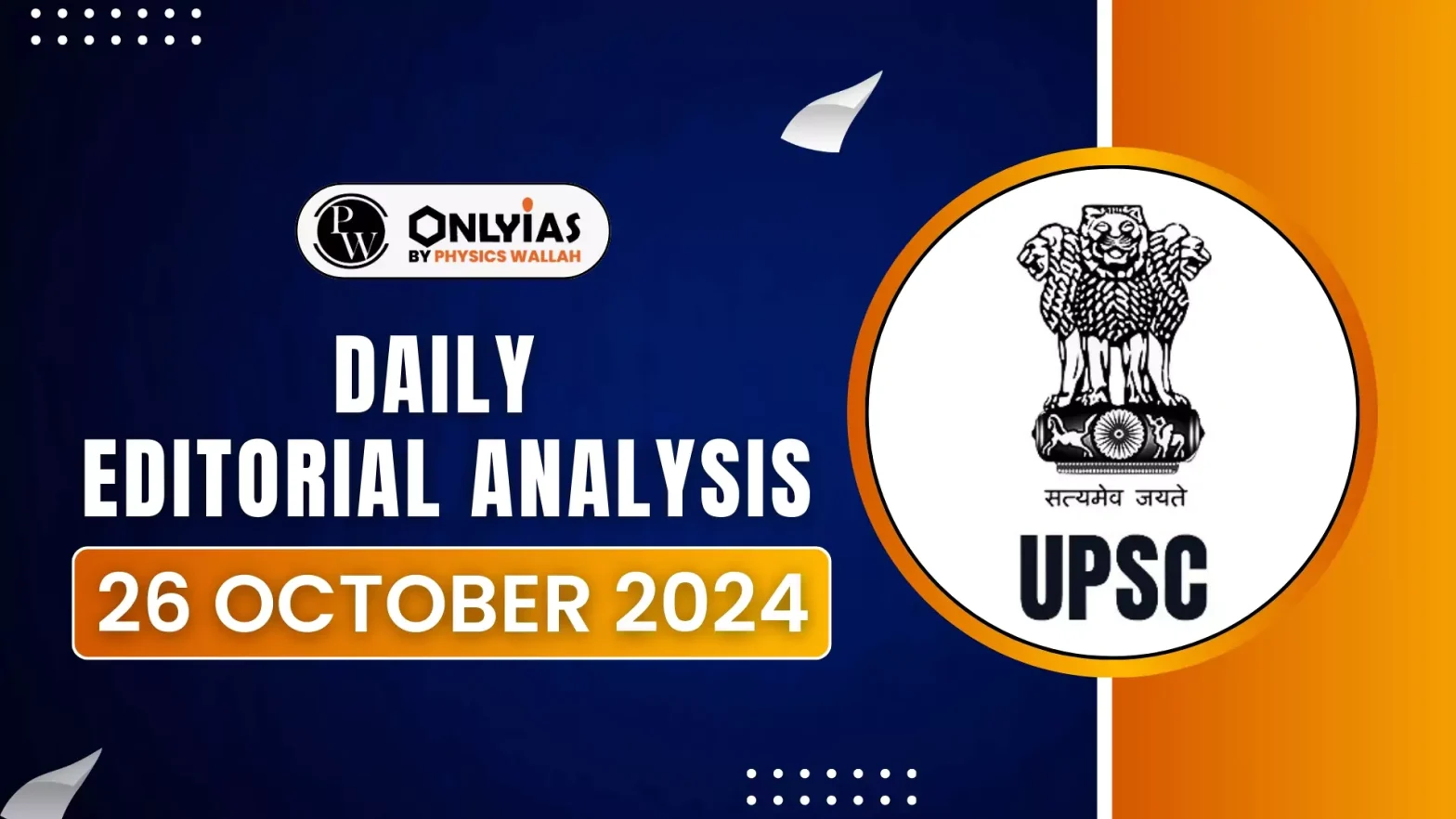Delays in paddy procurement in Punjab are attributed to overflowing godowns and insufficient storage capacity. This situation has led to dissatisfaction among millers and has significant implications for the local agricultural economy.
Situation in Punjab
- Favourable Harvest Conditions: Weather has been good for paddy farming, which means farmers were able to produce and harvest their crops without major issues.
- Slow Harvesting: Even though conditions were good, the pace at which paddy is being harvested and sold has slowed.
- Mandis Backed Up: The main reason is that around 90% of the harvested crop is stuck in mandis (local markets where farmers sell their produce), waiting to be bought and stored.
- Private Millers’ Refusal: Private rice millers, who usually store paddy for the government, are refusing to do so this year, causing a major bottleneck.
- Underlying Issues: The delays are due to a mix of logistical issues (transporting and storing the crop), bureaucratic issues (administrative delays and mismanagement), and political factors.
Enroll now for UPSC Online Course
How Does Paddy Procurement Work?
When paddy is harvested, farmers deliver it to millers for processing into rice, with the outer husk separated during milling. The polished rice is packed and sent to the godowns of the Food Corporation of India (FCI) for storage and distribution.
- Role of Centre, State and FCI: Each year, the Centre collaborates with state governments and the FCI to finalise paddy procurement estimates before the kharif marketing season (October to September), after which attention shifts to wheat cultivation for the rabi crop.
- MSP: State government agencies and the FCI purchase paddy from farmers at the Minimum Support Price (MSP) during a designated period.
- Buffer Stocks and Use in Welfare Stocks: After milling, the rice is transported to government storage facilities (godowns), where it is kept to maintain buffer stocks for emergency situations or distributed under the National Food Security Act (NFSA) or Public Distribution System (PDS) and other welfare programs.
Reasons for Low Procurement
185 lakh tonnes of paddy is procured for the entire season. However, as of October 23, 2024, only 37.68 lakh tonnes of paddy has been procured. This is low in comparison to 49 lakh tonnes procured during the same time frame in 2023.
1. Lack of Storage Space:
- When paddy is sent to private mills for processing, there is often insufficient storage space for the rice after husk separation.
- Private millers are hesitant to accept paddy due to limited space in government godowns, fearing they would have to store it themselves for a year.
- Consequences: Due to low space to store milled rice, only 7 lakh tonnes of the roughly 124 lakh tonnes of milled rice has reached the government godowns.
2. Hybrid Variety of Paddy:
- This year, hybrid paddy varieties have flooded the market. Unlike normal varieties, which have a stable out-turn ratio (OTR), hybrid varieties have a lower milling OTR, leading to losses for millers.
- They must deliver 67 percent OTR per quintal to the government. However, the hybrid paddy OTR is only 60 to 62 percent, causing losses of about Rs 300 per quintal.
| Out-turn ratio (OTR) refers to the proportion of rice that is extracted from paddy after the milling process. |
3. Traboules from Labour and Arhtiyas:
- Arhtiyas (commission agents) serve as middlemen in the grain procurement process and are now seeking a compensation of 2.5 percent on crop purchases, rather than the current fixed payment of Rs 46 per quintal.
- Similarly, mandi labourers are requesting higher wages. Protests from these groups have further hindered the procurement process.
Check Out UPSC CSE Books From PW Store
Impact of Delay in Procurement
- Likely Impact on Quality of Rice: Farmers are deliberately slowing down the harvest process because of the reason mentioned above.
- However, the longer paddy remains in the fields, the greater the risk of weight loss and deterioration in quality, which can also result in lower prices.
- Impact on Wheat: With farmers usually sowing the winter wheat crop in November, delays in paddy harvesting threaten to disrupt the state’s agricultural cycle. FCI is already concerned with the wheat stock in public godowns.
| The current wheat stocks in public godowns, which stand at 23.78 million tonnes (mt), slightly above the minimum required level of 20.52 mt. This stock level is the lowest for this time of year since 2008, excluding 2022. |
- Pollution: Additionally, a shorter interval between harvesting paddy and sowing wheat could increase the incidence of stubble fires, contributing to air pollution.
Way Forward
- Storage Solutions: We already know that the FCI storage facilities are lacking in space, so the government urgently needs to seek temporary storage solutions. A readily available option would be to utilise Punjab’s approximately 5,000 rice mills for storing paddy.
- OTR: The government must address the millers’ concerns, which include conducting OTR trials for hybrid varieties and enforcing stricter seed certification regulations.
- Timely Payments: Timely payment of arhtiya commissions, and addressing labour demands by fixing the prices.
- Diversification: Punjab needs to diversify its crops in the long term to prevent surplus issues.
- Farmers primarily grow rice and wheat because of the Minimum Support Price (MSP), but these crops use a lot of electricity and water, contributing to declining groundwater levels.
- Additionally, the return on investment for these crops is low.
Enroll now for UPSC Online Classes
Conclusion
The ongoing delays in paddy procurement in Punjab underscore the urgent need for improved storage solutions and efficient logistical management. Addressing these challenges is essential to support millers and ensure a smoother procurement process, ultimately benefiting the state’s agricultural sector.
![]() 26 Oct 2024
26 Oct 2024
